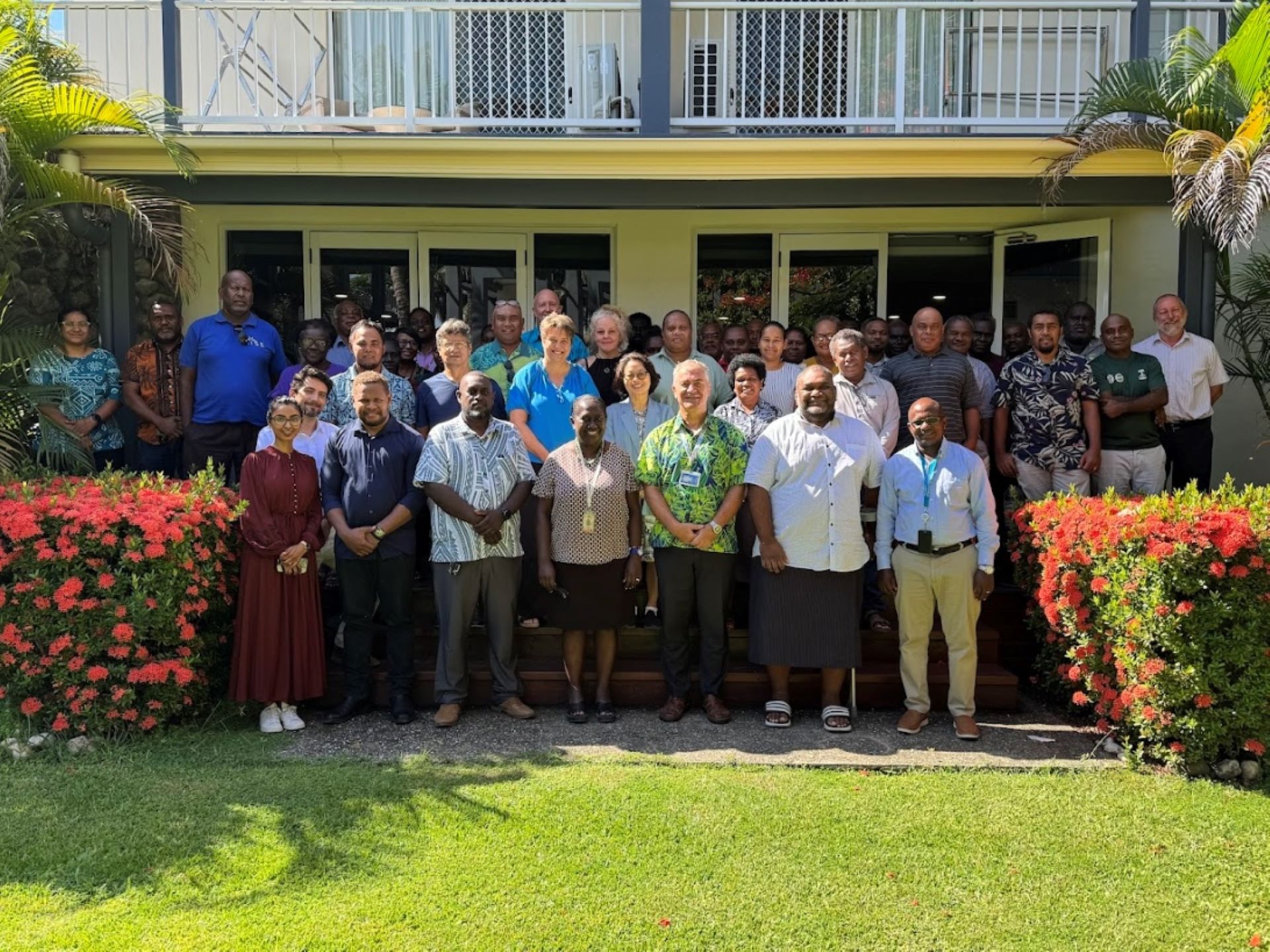The Ministry of Health and Medical Services (MHMS) with technical support from the World Health Organization (WHO) commenced a two-day a workshop on Digital Health Strategy for the Solomon Islands (2025-2029).
The workshop was participated in by Health Program Directors, Provincial Health Directors, Program Managers and other health partners from Australia’s Department of Foreign Affairs and Trade, UNICEF, UNFPA, World Bank and World Vision.
In her opening remarks, MHMS Permanent Secretary (PS), Mrs. Pauline McNeil said the workshop is a significant occasion that represents the culmination of years of unwavering dedication, collaboration, and visionary planning.
She stated the journey to implement digital health in the country began years ago, fueled by a collective commitment to revolutionize the country’s health system and thereby improve people’s health by leveraging the power of digital technology
A new era in health care.
“Today, we stand at the threshold of a new era in healthcare, one where digital health will play a pivotal role in enhancing the well-being of our population. Digital health transcends mere technological advancement; it signifies a fundamental shift in our approach to healthcare delivery,” said PS McNeil..
She added: ”By harnessing digital tools and technologies, we can cultivate a robust data ecosystem that empowers healthcare providers, policymakers, and communities. This ecosystem will enable us to make informed decisions, optimize resource allocation, and ultimately achieve substantial health improvements. A comprehensive data ecosystem is the cornerstone of a successful digital health strategy. It enables us to collect, analyze, and utilize health data in real-time, offering a holistic understanding of our health landscape. With precise and timely data, we can identify trends, address emerging health challenges, and implement targeted interventions. This brings us closer to our objective of universal healthcare, wherein every individual has access to quality health services.”

Solomon Islands Ministry of Health and Medical Services Permanent Secretary Pauline McNeil (fourth from right) with participants and partners during the two-day digital health workshop held in Honiara. Credit: WHO/R. Serrano
Aligned with the National Health Strategic Plan
Aligned with the National Health Strategic Plan
PS McNeil said the Digital Health Strategy has been carefully aligned with the National Health Strategic Plan (NHSP), ensuring that digital health initiatives are seamlessly integrated into the country’s broader health goals and objectives, particularly in advancing towards a patient- centered health system.
“By harmonizing our efforts with the NHSP, we can establish a cohesive and coordinated approach to healthcare delivery. A resilient data ecosystem is founded on robust standards, interoperability, and policies. It is imperative that we establish and adhere to these standards to ensure that our digital health systems are reliable, secure, and efficient”, said Mrs McNeil.
Staff capacity development is a must
However, PS McNeil stated the success of the digital health strategy is contingent upon the capabilities of staff. Investing in training and capacity-building is essential to equip the healthcare workforce with the skills and knowledge necessary to navigate the digital landscape. Highly capable staff, armed with strong evidence-based information, will be able to make better decisions and deliver improved health outcomes for the people.
“As we embark on this transformative journey, let us remember that the success of our Digital Health Strategy hinges on our collective efforts. Together, we can build a health system that is resilient, responsive, and inclusive. Let us embrace the opportunities that digital health presents and strive towards a healthier future for all Solomon Islanders,” said PS McNeil.
The benefits of digital health
Meanwhile, speaking on behalf of Dr. Howard Sobel, the WHO Representative, Dr Georgios Theocharopoulos, Technical Officer for Epidemiology, highlighted the advantages of a well-designed digital health infrastructure. “The benefits of a well-designed digital health infrastructure are multiple. It can significantly improve the quality and continuity of care, ensure adherence to clinical guidelines, contribute to patient safety, and streamline health-financing models based on evidence”.
He added, “A solid, national digital health strategy with integrated solutions will let us accelerate these innovations, allowing the health sector to optimize resource allocation, improve regulatory oversight, and support effective health policymaking.
About the Strategy
The Solomon Islands Digital Health Strategy (2025-2029) serves as a guiding framework to transform the health system through digital health, building on existing digital health successes and it t is closely aligned with the aspirations of the NHSP 2022–2031, to build a healthier future for all.
Grounded in insights from a baseline digital health maturity assessment and desk review, the strategy envisions a robust foundation for digital health to support achieving the goals of the NHSP, making healthcare more accessible, efficient, and equitable.
